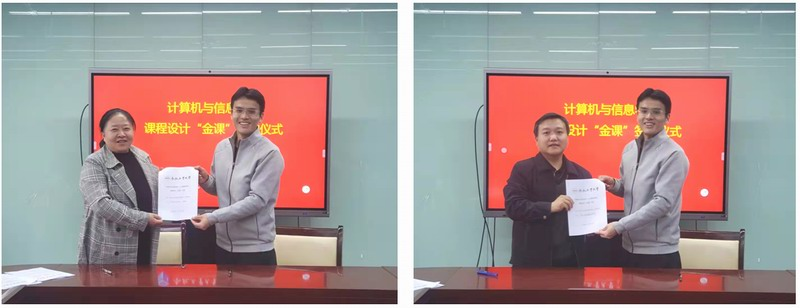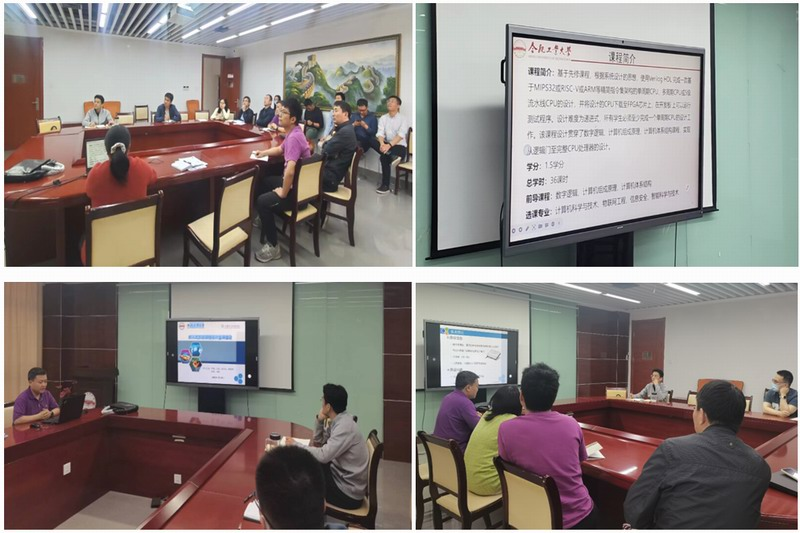The practical teaching activities such as course design are crucial for students' training and development, as they are related to students' employability, self-confidence, and career development!
In order to make the "course design" practical and strengthen its implementation, the college has launched the construction of "gold courses" in 2023 to meet the basic requirements of professional talent training. The first two courses selected are "Comprehensive Design of System Hardware" (for Computer Science and Technology majors) and "Embedded System Course Design" (for Internet of Things majors).
On April 13th, the college held the signing ceremony for the first batch of "gold courses" in course design.

Figure 1: "Gold Course" signing ceremony
On May 8th, the two "gold course" course groups reported their course construction plans and implementation plans. In accordance with the "Regulations on Course Design in the College of Computer and Information Science" (College Government Letter [2023] No. 5) and the "Teaching Supervision System for Course Design in the College of Computer and Information Science" (College Government Letter [2023] No. 6), the two course groups provided detailed introductions on various aspects such as the allocation of guiding teachers, student assistants, topic design, guiding mode, acceptance control, and grading methods, and proposed many effective practices with distinctive features.

Figure 2: "Gold Course" course group reporting on course construction plans and implementation
The basic characteristics of the "gold course" course design are as follows:
(1) Course design guidance is conducted through a "course group" composed of 6-7 teachers, with 3 student assistants. A strong team of guiding teachers is a prerequisite guarantee.
(2) The design of the topics reflects the solution to complex engineering problems. The content of the topics involves multiple professional techniques and has a high level of complexity and difficulty, reflecting the "two sexes and one degree".
(3) The execution period is long and follows the laws of teaching. From topic arrangement, learning preparation, concentrated practice, to result acceptance, students are guided to learn, practice, and innovate in a progressive process.
(4) Detailed guidance and care for students. From online Q&A in the course QQ group to on-site code debugging guidance in the laboratory, students feel valued and cared for.
(5) Strict acceptance and review to prevent any student from falling behind. Detailed and comprehensive assessment and acceptance are implemented to eliminate the phenomenon of "going through the motions" and ensure that every student receives the necessary training and accumulates project experience.
The college will conduct "teaching supervision" on the implementation of the "gold course" course design, recognize the workload, quality, and achievement of course objectives in teaching activities, and provide workload subsidies based on the recognition results. The recognition results will also serve as an important basis for "teaching evaluation" in the evaluation of professional titles.
College of Computer and Information Science
May 10, 2023
 TOP
TOP